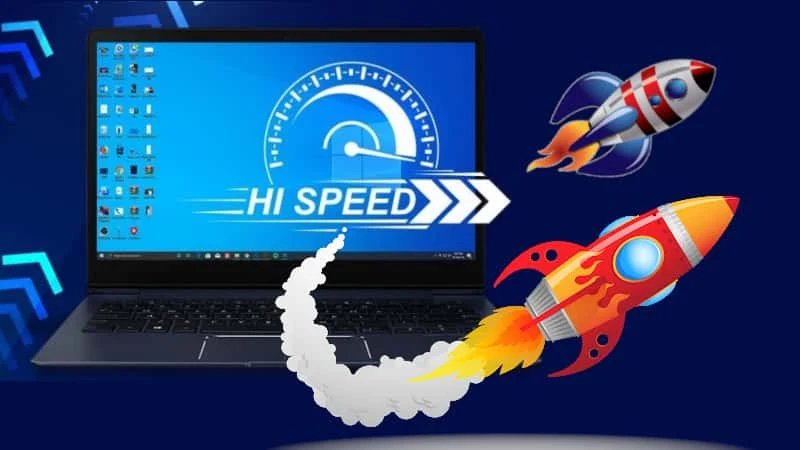Laptop running slow? 5 tips to speed up your computer
If the laptop runs for a long time, it gradually becomes slow. Occasionally laptop hangs. This creates problems. Learn how to solve this problem.- Article authored by Kunal Chowdhury on .
If the laptop runs for a long time, it gradually becomes slow. Occasionally laptop hangs. This creates problems. Learn how to solve this problem.- Article authored by Kunal Chowdhury on .
How quickly your PC boots depends on a few things, including what kind of hardware you are using, and what version of Windows it is. The number of programs scheduled to run while Windows is running also has a substantial impact. If it takes too long for your computer to start, it could have too many programs running at startup. If you are running out of RAM, when there are too many programs running, your computer is going to be slowed down a lot.
So, what needs to be done to boost the performance of your laptop or desktop? Let's discuss 5 important tips that will speed up your computer.

Whether you are using your PC for work or for entertainment, a slow-running computer can make life far more frustrating than it needs to be. Laggy performance speeds can render your PC pretty much useless - especially when you are struggling to even open a window, load a website, or even boot up the system.
Shutting down your computer will clean your RAM and shut down additional programs and processes running in the background. Slowing down a computer is usually related to programs requiring lots of RAM, CPU or hard disk space to properly function.
Many people do not turn off the computer properly after finishing their work. That's a very bad practice. It causes pressure on the computer system as it can't free up the resources that are not being used for a longer time. So every time you finish working, turn off the computer properly.
In many cases, unused files are stored on laptops or desktops for a long time. In that case, after the file has been stored for a long time, the storage drive starts filling up. So delete old unnecessary files. And if you have to keep all the files, then you must use a cloud drive. Multiple cloud drives are currently available for free. As a result, you can use cloud storage in case of storage problems.
Windows 10 and Windows 11 provide a very good functionality called Storage Sense. Make sure to turn ON this feature so that the system will automatically clean up unnecessary files from your download folder, Recycle Bin, and other temporary folders.
RAM plays a vital role in any system, be it laptop or desktop. As a result, the higher the RAM of the system, the better the performance of the system. So when the pressure on the laptop is increasing, it is necessary to change the RAM of the PC. If the RAM increases, the PC is very unlikely to hang.
While adding more RAM to your system, make sure that your system supports those extra GBs and the frequency of the RAM. Always try to opt for a higher frequency than a lower one. Your RAM will be functional at the highest speed that your motherboard supports.
HDDs are operationally slower than the SSD (Solid State Disks). If you are having an old age 5400RPM or 7200RPM hard disk drive, you would like to upgrade it in having an SSD. SSDs are faster than HDDs, which will improve the booting time and overall performance of the system.
Once you install an SSD along with your old HDD, make sure to move the operating system to the new drive to get the overall system performance a quick boost.
All operating systems come with frequent updates. These include security updates as well as non-security updates. Sometimes it provides you a performance boost as most of the non-security updates come with bug fixes and improvements.
After updating your system, make sure to restart the device and then perform a quick cleanup of unnecessary files that the upgrade process left behind.
If you can't effort to spend too much on upgrading your system, and your computer is older, has a hard drive instead of an SSD, and has less RAM, you might want to try using ReadyBoost with a USB thumb drive. If you are uncomfortable testing a hard drive, bring the computer to a technician who can properly diagnose the problem and, if necessary, update the storage. Doing so will dramatically lower your CPU load and probably improve the performance of the computer, plus will increase your computer's battery life (if you own a laptop).
In addition to the above, you may also like to read the following articles:
Thank you for visiting our website!
We value your engagement and would love to hear your thoughts. Don't forget to leave a comment below to share your feedback, opinions, or questions.
We believe in fostering an interactive and inclusive community, and your comments play a crucial role in creating that environment.